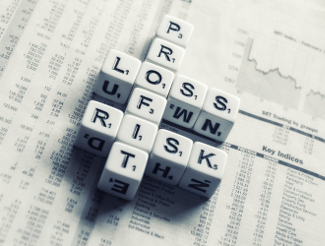There are undoubtedly millions of investors out there who still are heavily invested in stock markets. They enjoyed the gains they’ve seen over the past several years, with both the Dow Jones and the S&P 500 reaching all-time highs on a consistent basis. As a result, the number of 401(k) millionaires in this country has never been higher. But now that stock markets are crashing into bear market territory, many of those investors who remained in stock markets are wondering if they made the right decision by staying committed to stocks.
To many Americans, the prospect of the economy crashing as a result of the coronavirus seems far-fetched. It hasn’t sickened or killed that many people yet, and the effects on the economy seem like they shouldn’t be far-reaching or long-lasting. Those investors are still in stocks because they believe in the underlying strength of the US economy.
Other investors may just be in it for the long haul, believing that a buy and hold strategy and dollar cost averaging are the way to go. They’ll continue buying stocks all the way down, and seeing their 401(k) and IRA balances decline along the way.
But many other investors foresaw the crash coming a long time ago. They realized that stock markets were in a bubble, and they knew that bubble was going to crash. Many of them diversified their portfolios away from stocks, into safer investments and hedges like gold and silver. They may have missed out on some stock market gains, but they protected their assets against market declines.
Since hindsight is always 20/20, how would investors have fared had they gotten out of stock markets a year or two ago? And how would their investments in gold and silver have fared if they had protected themselves in advance?
2018 – Stocks Reach a High
After rocketing upwards in the aftermath of the 2016 elections, it seemed like the Dow Jones was gaining an extra thousand points every month, with no end in sight. Calls of Dow 30,000 and Dow 40,000 were not uncommon. So how would investors have fared had they gotten out of stocks during that time?
The Dow hit a record high at the end of January, closing on January 26 at 26,616.71. Investors who moved out of stocks at that time would have moved out at 90% of the Dow’s eventual all-time high. That means they would have missed out on an additional 11% of gains over the past two years. But they would have moved out 13% above Wednesday’s market close.
Had those investors invested in gold, they would have bought in at $1,349.30 an ounce, and booked a 21% gain over the past two years. So in retrospect, that would have been the smart move to make.
Stock markets saw a correction beginning in February 2018, but markets recovered later in the year to set new highs. Investors who had waited until later in the year, October, would have sold at 26,828.39. They would have missed out on 10% of additional gains in stock markets between then and the Dow’s high on February 12, but would have sold at a level 14% higher than today. And had they invested in gold, they would have seen 37% gains in just a year and a half.
2019 – Dow 27,000 and 28,000
The last quarter of 2018 was a rough one for stock markets, with all major indices reaching correction territory. But the rebound in early 2019 sent markets back towards record highs. After a phenomenal start to the year, the Dow Jones first broke through the 27,000 point barrier on July 11. Investors who had picked that day to sell would have missed out on an additional 9% in gains between then and the all-time high. But they would have been 15% better off than today. And had they moved into gold, they would have seen gains of 16.5%.
In November 2019 the Dow Jones finished above 28,000 for the first time, ending November 15 at 28,004.89. Investors who moved out of stocks that day would have missed out on 5.5% gains over the next three months. But they would have sold at a level 19% higher than today. And had they moved into gold, they would have made an 11.4% gain since then.
The Lesson to Be Learned
It can be tempting to want to stay invested in stock markets for the long haul. After all, many financial advisers recommend that stocks are the best way to gain wealth. But as the above examples demonstrate, when stocks are reaching all-time highs it can often be better for investors to move into other assets instead.
Fear of missing out motivates a lot of investors, and has been a major reason behind so many investors piling into stock markets in recent years. But as stock markets stayed near all-time highs for so long, gains became more and more difficult to make once investors were already at the top.
Gold, on the other hand, being a hedge against financial turmoil and economic crisis, was a natural alternative investment. And those investors who made use of it in recent years have reaped the benefits.
With stock markets set to continue losing value as the coronavirus crisis deepens and the economy is negatively affected, the case for gold is stronger than ever. Gold more than doubled in value from the 2008 crisis until reaching its record highs, and at the very least it will likely break its record high price within the next year or so.
Investors now have to make a tough decision. Do they stay invested in stocks, expecting them to rebound back towards their all-time highs? Or do they invest in gold, trusting that it will continue to gain value in the face of a bear market? The future of their retirement is riding on making the right decision.
This article was originally posted on Goldco.




